As the Summer Solstice Approaches
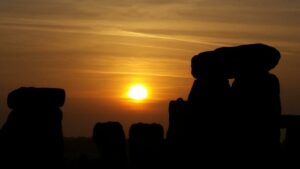 Exhausted. You wouldn’t think that the summer solstice would cause me to become exhausted, but the reality is there’s too much to do now that summer is striding towards us. I can feel its touch, even though the relentless rains are turning everything into a lush, green carpet.
Exhausted. You wouldn’t think that the summer solstice would cause me to become exhausted, but the reality is there’s too much to do now that summer is striding towards us. I can feel its touch, even though the relentless rains are turning everything into a lush, green carpet.
Heralding the Winter
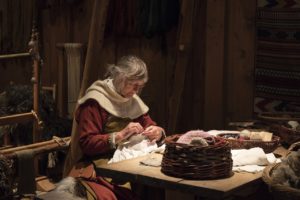 Summer solstice is the longest day of the year, and the daylight will give into night bit by bit after the solstice passes. The days will shorten again, but the hottest days are still to come. Sometime around July 1st, the rains will stop and the land will dry out. We won’t see much rain until September.
Summer solstice is the longest day of the year, and the daylight will give into night bit by bit after the solstice passes. The days will shorten again, but the hottest days are still to come. Sometime around July 1st, the rains will stop and the land will dry out. We won’t see much rain until September.
It is a time when I must plan for the upcoming fall. Hunting season is just around the corner, relatively speaking. Planning comes during this time because the temperatures are too hot to do much else. I hope we have a typical summer, and not a global warming summer. I can handle the 80s–not so much temperatures in the 90s and 100s. At this point, I’m imploring Skadi to make it an early winter.
Using the Summer to Prepare
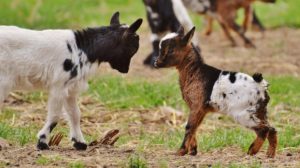 One pagan whose blog I’ve read said that summer solstice is a time to pause, because the crops have already been sown and the harvest isn’t until fall. Ah, but that is only part of the summer. Work isn’t done especially during summer. It’s a preparation for the cold nights ahead. Berries and edibles need foraging. Dairy animals need milking. Cheese needs to be made. Young animals need caring for.
One pagan whose blog I’ve read said that summer solstice is a time to pause, because the crops have already been sown and the harvest isn’t until fall. Ah, but that is only part of the summer. Work isn’t done especially during summer. It’s a preparation for the cold nights ahead. Berries and edibles need foraging. Dairy animals need milking. Cheese needs to be made. Young animals need caring for.
The sun’s return heralds the shift in daylight. Sunna says, you’re already late getting things done for winter. Hurry up! Sure, there were idle hands, which meant families sent their restless sons and daughters to go Viking during that time. But being a Viking didn’t always mean raids. It meant trading as well. Some Vikings traded for goods from the south and east, using the waterways as highways.
Fall Meant Harvest
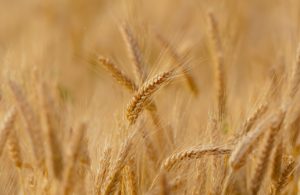
Our Northern ancestors only recognized two seasons: Summer and Winter. Everything else was just shades of those two seasons. Summer was a time for planting and harvest; winter was a time of slaughtering animals and putting up the food for the long nights. It was vitally important to work now so you could survive the winter.
Which was More Important: Summer or Winter Solstice?
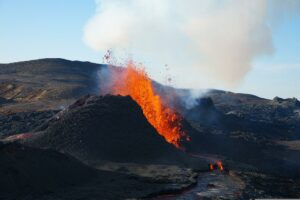
I’m sure our Northern ancestors celebrated the summer solstice, but the winter solstice was probably more important. The winter solstice was the return of the sun; the sunlight’s return was vitally important. And given that the sun’s warmth wasn’t always a given, (as witnessed from two volcanic eruptions in the 6th century), our ancestors naturally celebrated when the sun came back. The two volcanic eruptions in the 6th century caused widespread crop failures, famine, and probably contributed to the plague pandemic at the time. The sun had been noticably dim and there was widespread drought throughout the world. The winters and summers were colder and millions of people died due to the brutal conditions.
These two volcanic eruptions began the Late Antique Little Ice Age (LALIA). The loss of sun, crop failures, and relentless cold must’ve made it feel like fimbulvetr had indeed arrived. So, the return of the sun’s light was vitally important to our ancestors.
Summer Solstice and the Death of Baldr
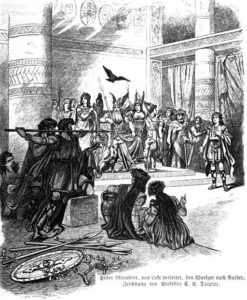 I have pointed out quite a bit how the story of Baldr’s death is actually a metaphor for the summer solstice and the upcoming winter. Baldr is the god of the summer sun; Hodr symbolizes winter and cold. On the summer solstice, Hodr slays Baldr, but Baldr rises again on winter solstice. An excellent tale.
I have pointed out quite a bit how the story of Baldr’s death is actually a metaphor for the summer solstice and the upcoming winter. Baldr is the god of the summer sun; Hodr symbolizes winter and cold. On the summer solstice, Hodr slays Baldr, but Baldr rises again on winter solstice. An excellent tale.
Have a bit of mead this summer solstice! Be safe!
—
Did you know you can become my patron for as little as $5 a month? This entitles you to content not posted anywhere else. Plus you get to see posts like this three days before the public! Without patrons, I’d be having a very hard time keeping this blog going. Become a patron today!Become a Patron!
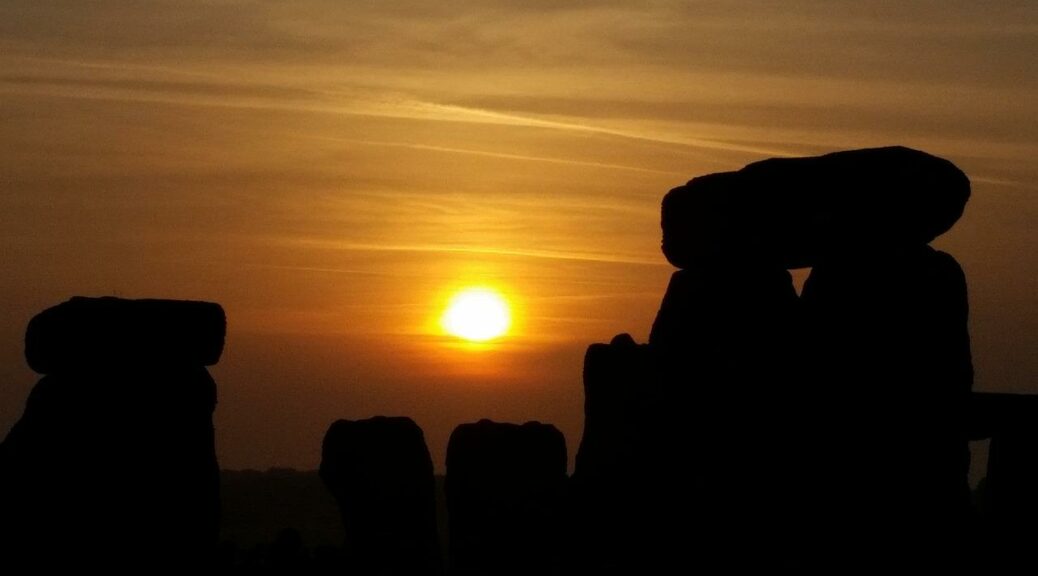
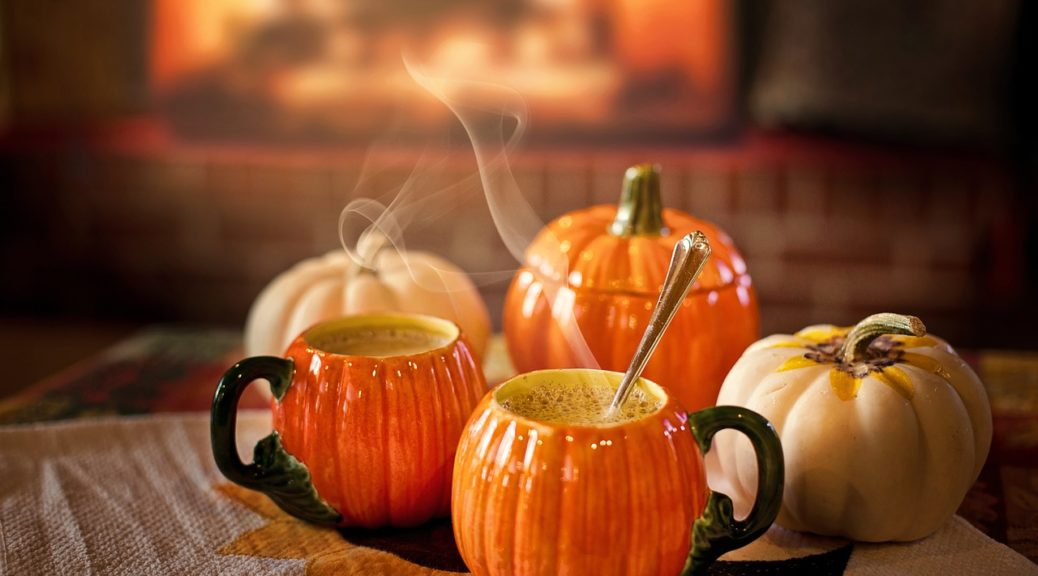
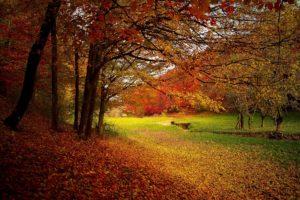 Yes, it’s that time of year:
Yes, it’s that time of year: 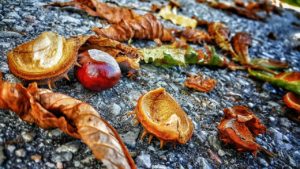 Even at less extreme latitudes, people probably notice the march toward the darker days. So one has to wonder if our northern ancestors celebrated the equinox.
Even at less extreme latitudes, people probably notice the march toward the darker days. So one has to wonder if our northern ancestors celebrated the equinox.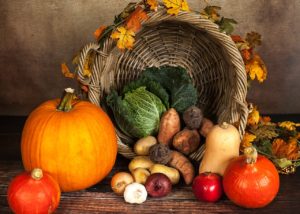 The Norse split the seasons into two: winter and summer. It makes sense, really, because there was just growing seasons and snow. As much as I’d like to think our ancestors marked the equinox, chances are they were too busy getting the harvest put up.
The Norse split the seasons into two: winter and summer. It makes sense, really, because there was just growing seasons and snow. As much as I’d like to think our ancestors marked the equinox, chances are they were too busy getting the harvest put up.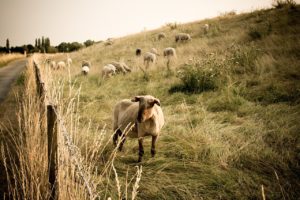 Back then, community wasn’t just for socialization. It was the only means you could survive in that harsh climate. You did a lot of things, but there were other people whose expertise you relied on. Not everyone was a blacksmith, carpenter, hunter, cloth maker, or field worker. While there were many farmers, the farmers also needed their tools repaired, sick animals cared for, and furniture made. Sure, some people did it all, but many people traded things they made or grew for services.
Back then, community wasn’t just for socialization. It was the only means you could survive in that harsh climate. You did a lot of things, but there were other people whose expertise you relied on. Not everyone was a blacksmith, carpenter, hunter, cloth maker, or field worker. While there were many farmers, the farmers also needed their tools repaired, sick animals cared for, and furniture made. Sure, some people did it all, but many people traded things they made or grew for services.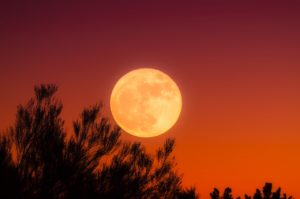 As I said, I don’t think that people had a particular observance for the equinoxes during the Viking era. However given that our northern ancestors spread throughout Europe, Russia, the Middle East, and Africa, different customs arose. Since the autumnal equinox came around harvest times, it could’ve easily been incorporated in harvest celebrations. So, there is no reason why you can’t celebrate it as a Heathen.
As I said, I don’t think that people had a particular observance for the equinoxes during the Viking era. However given that our northern ancestors spread throughout Europe, Russia, the Middle East, and Africa, different customs arose. Since the autumnal equinox came around harvest times, it could’ve easily been incorporated in harvest celebrations. So, there is no reason why you can’t celebrate it as a Heathen.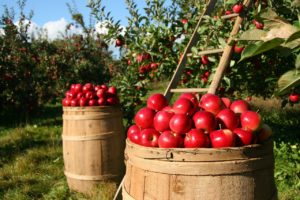 There are plenty of things you can do to celebrate the autumnal equinox. Here are some ideas:
There are plenty of things you can do to celebrate the autumnal equinox. Here are some ideas: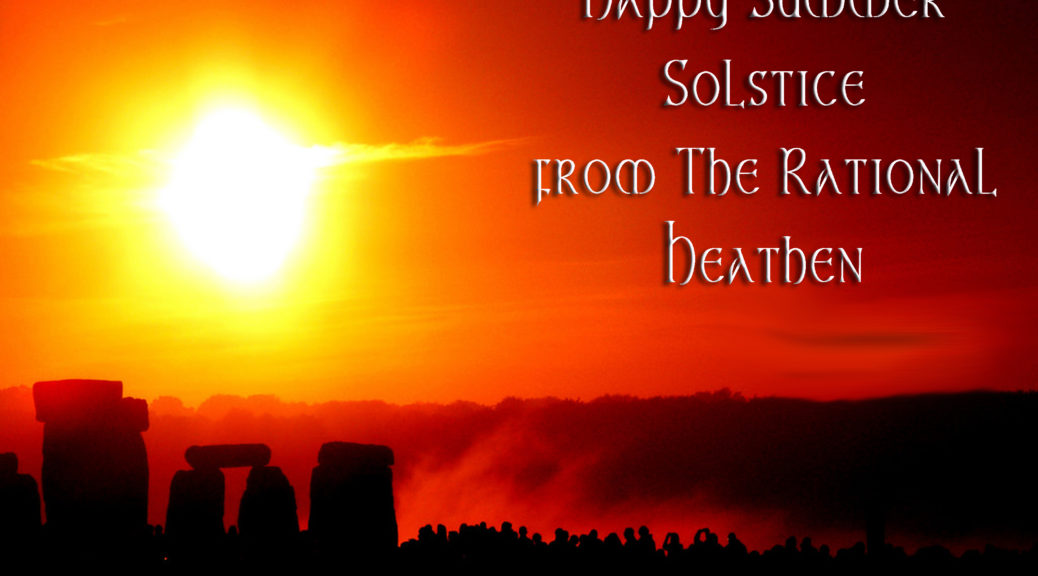
 Okay, this is for those early birds who can get up and greet the new day. Or, for those of us who are night owls, who stay up long enough to see dawn break. The rest of you mere mortals will probably be a bit bleary-eyed for this. Even so, prepare a blot and offer it to Sunna, the wights, the ancestors, and to the gods and goddesses of summer.
Okay, this is for those early birds who can get up and greet the new day. Or, for those of us who are night owls, who stay up long enough to see dawn break. The rest of you mere mortals will probably be a bit bleary-eyed for this. Even so, prepare a blot and offer it to Sunna, the wights, the ancestors, and to the gods and goddesses of summer.
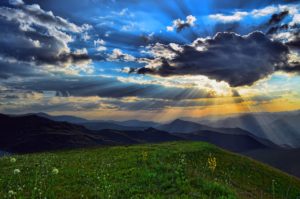 The best way to celebrate the summer solstice is to get outdoors and do something that helps you enjoy the long daylight. This includes simple things like taking a walk, going hiking, going fishing, or doing some type of activity that involves getting outdoors. With COVID-19, remember to keep your distance from people who are not in your household, and to wear masks if you’re heading somewhere people are present.
The best way to celebrate the summer solstice is to get outdoors and do something that helps you enjoy the long daylight. This includes simple things like taking a walk, going hiking, going fishing, or doing some type of activity that involves getting outdoors. With COVID-19, remember to keep your distance from people who are not in your household, and to wear masks if you’re heading somewhere people are present.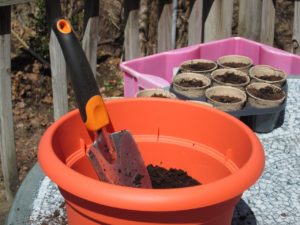 You do have a garden, don’t you? Even if it’s only a few herb pots or flowers, give them extra care today. Summer solstice is the longest day of the year when photosynthesis is at its peak due to all that sun. Even if it’s cloudy, the daylight provides extra time for growth.
You do have a garden, don’t you? Even if it’s only a few herb pots or flowers, give them extra care today. Summer solstice is the longest day of the year when photosynthesis is at its peak due to all that sun. Even if it’s cloudy, the daylight provides extra time for growth.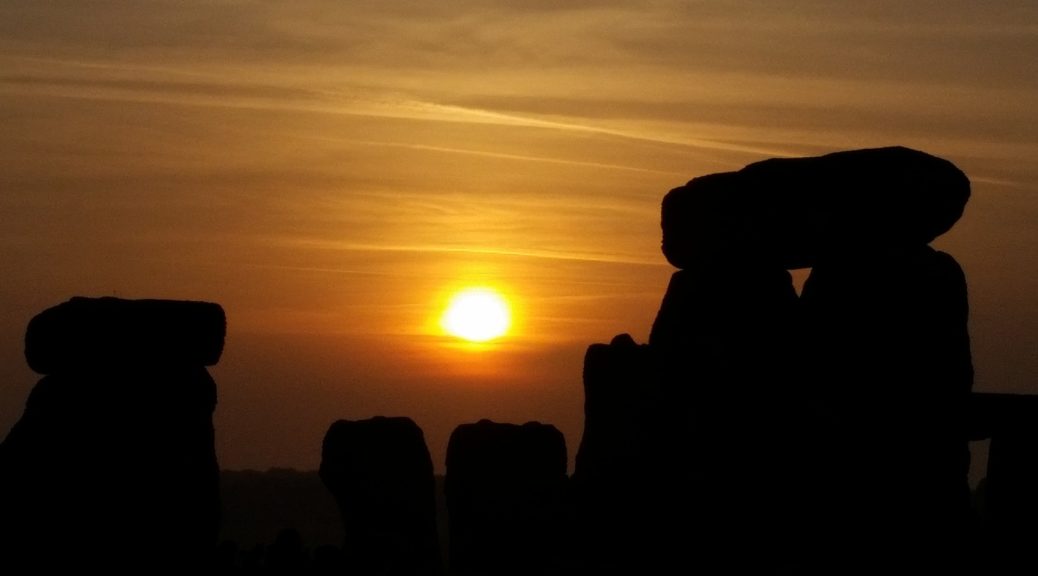
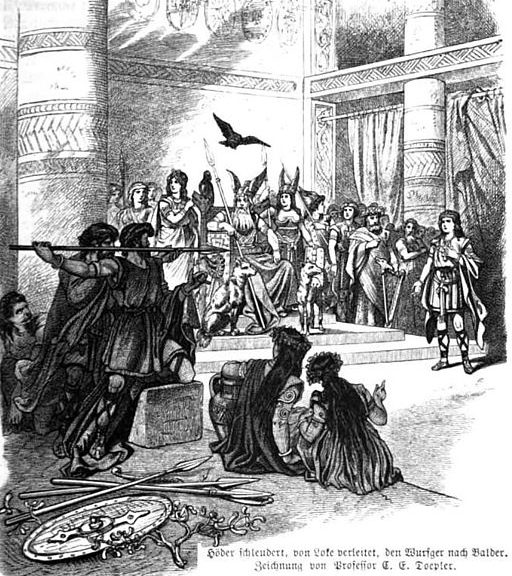
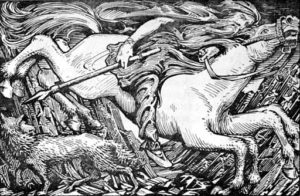 Baldr had nightmares of his death. Odin therefore went to Niflheim to consult a dead seeress to find out what was the cause of Baldr’s nightmares. The seeress told Odin that that Baldr would die by Hodr’s hand (Hodr is the brother of Baldr).
Baldr had nightmares of his death. Odin therefore went to Niflheim to consult a dead seeress to find out what was the cause of Baldr’s nightmares. The seeress told Odin that that Baldr would die by Hodr’s hand (Hodr is the brother of Baldr).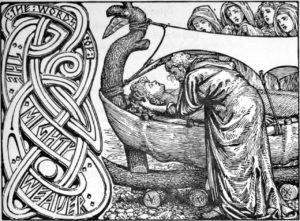 was not throwing things. Loki offered to guide Hodr’s hand so he could throw something. He put the mistletoe into Hodr’s hand. Hodr threw and the dart pierced Baldr’s heart. Baldr fell dead.
was not throwing things. Loki offered to guide Hodr’s hand so he could throw something. He put the mistletoe into Hodr’s hand. Hodr threw and the dart pierced Baldr’s heart. Baldr fell dead.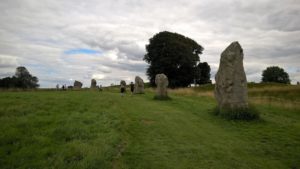 The story of Baldr is the story of the seasons and the natural cycle of life. Our northern ancestors revered the sun and its life-giving heat and warmth. We know the summer solstice was a holy time for northern pagans — especially those who built monuments to the sun during the neolithic age. Baldr is clearly associated with the midsummer sun — the sun at solstice. It is no surprise that his blind brother, Hodr (winter) slays him with the help of Loki (who is a chaos god) which brings about renewal (Ragnarok). Baldr is the renewal of life and all the beauty associated with it. Hodr is the old age and the impending death. Loki (chaos and entropy) brings these changes about.
The story of Baldr is the story of the seasons and the natural cycle of life. Our northern ancestors revered the sun and its life-giving heat and warmth. We know the summer solstice was a holy time for northern pagans — especially those who built monuments to the sun during the neolithic age. Baldr is clearly associated with the midsummer sun — the sun at solstice. It is no surprise that his blind brother, Hodr (winter) slays him with the help of Loki (who is a chaos god) which brings about renewal (Ragnarok). Baldr is the renewal of life and all the beauty associated with it. Hodr is the old age and the impending death. Loki (chaos and entropy) brings these changes about.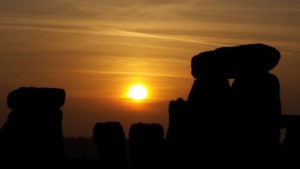
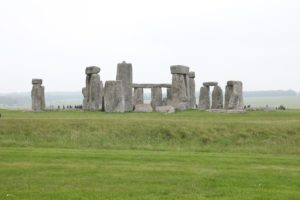 It’s little wonder why the mistletoe is a symbol of the winter solstice, since it is the symbol of Baldr’s death. But the winter solstice is also the symbol of the return of life. We know that the days will grow longer again after December 21st, just as we know the days will start to grow shorter after June 21st. So, this summer solstice, raise a horn or glass of mead to the god of rebirth and renewal. Because we know that Baldr may “die” with the oncoming winter, but he will be reborn once again. (And the Christians thought that they were the only ones with a god who dies and is reborn?)
It’s little wonder why the mistletoe is a symbol of the winter solstice, since it is the symbol of Baldr’s death. But the winter solstice is also the symbol of the return of life. We know that the days will grow longer again after December 21st, just as we know the days will start to grow shorter after June 21st. So, this summer solstice, raise a horn or glass of mead to the god of rebirth and renewal. Because we know that Baldr may “die” with the oncoming winter, but he will be reborn once again. (And the Christians thought that they were the only ones with a god who dies and is reborn?)